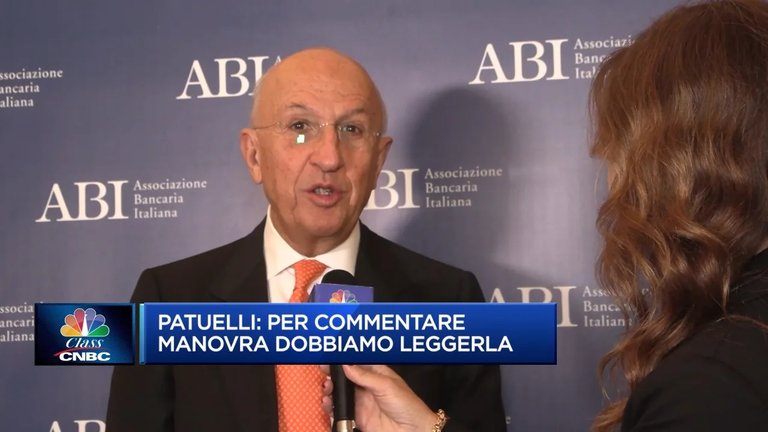
The recent proposal to increase the capital gains tax on Bitcoin and cryptocurrencies from 26% to 42% has now become law. This provision, included in Italy’s 2025 budget law, has been signed by President Sergio Mattarella and is set to be discussed in Parliament. The final approval process in both chambers will determine whether the tax hike will indeed take effect, and it is in this stage where the real battle, through amendments, may unfold.
Key Points on Italy's New Cryptocurrency Tax Law:
Parliamentary Battle and Possible Amendments:
- While the new tax has been officially included in the 2025 budget law, the upcoming parliamentary discussions will be critical. Amendments introduced during this phase could potentially reverse or alter the government’s decision. Many stakeholders believe this is where the most important debates will occur.
Opposition from Political Parties:
- Not everyone is in favor of this significant tax hike. The right-wing Lega party, led by Matteo Salvini, has voiced strong opposition. One of the party’s main concerns is that a steep increase in taxation might drive cryptocurrency activities underground, hindering transparency and regulation.
- Giulio Centemero, a member of the Lega, argued that increasing the tax rate is "counterproductive" and could push individuals towards unregulated markets, thus working against the goal of protecting small investors and encouraging a sector poised for growth.
- Another Lega representative, Federico Freni, Undersecretary for the Economy, also expressed disapproval. He specifically called for Parliament to reconsider this measure, stating: "If there is one sector that represents the future, it’s cryptocurrencies. Drastically increasing taxes on capital gains is not the most sensible move." Freni suggests that there are more rational ways to regulate the sector without stifling innovation or driving investments abroad.

Political and International Dynamics:
- The Lega also faces a political dilemma. The party aligns itself with figures like Donald Trump and Elon Musk, both of whom advocate for a more deregulated approach to cryptocurrency markets. This creates a tension for the party, which finds itself at odds with the current Italian government’s stance on tightening the tax regime for digital assets.
Support from the Banking Sector:
- In contrast, the banking sector, represented by Antonio Patuelli, President of the Italian Banking Association (ABI), supports the tax increase. Patuelli questioned why there should be a preferential tax rate on what he calls “uncontrolled liquidity,” referring to cryptocurrencies. He views the proposed 42% tax as a fair approach to leveling the playing field, suggesting that the prior lower tax rate on crypto investments had created an unjust advantage for investors in this sector.

Concerns Over Unfairness and Economic Consequences:
- Beyond the higher taxes, critics argue that the new law is unfair and discriminatory. A major point of contention is that Bitcoin ETFs (Exchange Traded Funds), which are typically offered through banks, will remain taxed at the lower rate of 26%. This could incentivize the use of banking services over direct cryptocurrency investments, effectively favoring the traditional financial system over decentralized alternatives.
- Another concern is that the steep tax increase could lead to capital flight, with investors moving their assets to tax havens or countries with more favorable regulations. Italy risks losing a share of its crypto-investment market as individuals and businesses seek environments that allow them to keep a larger portion of their gains.
Crypto Community's Pushback:
- The crypto industry in Italy is fighting back against the proposed changes. Operators and investors in the sector have penned an open letter to the Italian government, urging for the law to either be amended or scrapped entirely. They argue that such a tax hike not only threatens the growth of an emerging financial sector but also harms Italy’s position as a competitive player in the global cryptocurrency space.

- Long-Term Implications:
- The final outcome of this tax increase will depend heavily on how the discussions in Parliament play out. If the law passes as it stands, it could set a precedent for stricter regulation and higher taxation of cryptocurrencies in other European nations as well. Conversely, if Parliament introduces amendments to lower or adjust the tax rates, it could signal a more balanced approach to fostering innovation while still ensuring government revenue.
In summary, Italy’s proposed tax increase on cryptocurrency gains has sparked widespread debate, with significant political and economic implications at stake. While the law has been signed, its future will ultimately be determined in Parliament, where discussions may either uphold or reshape the government's strategy. The tension between regulating a fast-growing sector and promoting innovation remains at the heart of the issue, and the final decision could influence not just Italy but broader European approaches to cryptocurrency taxation.